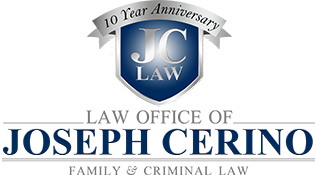It’s no secret that raising a child is expensive. Nationwide, the child support program serves one-fifth of all U.S. children and one-third of all U.S. children in poverty. (Source: ncsl.org). Child support, as the name suggests, supports the financial stability of families and children through ongoing periodic payments. The payments are typically made to the child’s caretaker, such as a parent or legal guardian. Child care and maintenance can be overwhelming, especially as a single parent. Here are some common questions about child support.
What does child support cover?
Child support covers basic needs such as shelter, clothes, food, and electricity. Child support is a general reimbursement for the cost of caring for children. Child support can also cover more than simply putting a roof over the child’s head and medical necessities. It may also include extracurricular activities including daycare, travel, and sports.
Who is given child support?
Despite the belief that only men pay child support, regardless of sex, whoever is the majority caretaker of the child will receive child support payments. If the child sleeps most nights under your roof, you will likely be on the receiving end of child support payments. The amount is based on a calculation that involves the parents’ income.
How is child support calculated and modified?
While different in each state, Florida child support is based on salary, bonuses, tips, dividends, disability benefits, social security, spousal support from a previous marriage, and estate income. Health insurance, dental care, and other special needs of the child may also be taken into consideration when child support is being calculated. Child support is not tax-deductible by the payer and not taxable by the receiver.
What documents might I need to present for child support?
The most common items you are asked to bring to the department of revenue or your local child support office include: social security card, driver’s license, name and contact of current employer, payslips, or tax returns. You may also need to bring a court order, divorce decree, or separation agreement. It is also a good idea to bring your child’s personal records.
How do I handle late payments?
Payments are determined by law and enforced through court orders. Typically, child support is paid weekly, bi-weekly, or bi-monthly, but it depends on the agreed-upon schedule of both parties. To avoid problems between the separated parents, all payments are made through a third-party agency. If payments fall behind, the agency can freeze the account, report delinquencies to credit bureaus, or suspend the non-compliant parent’s driver’s license. Tax returns can also be redirected and paid to the parent who is owed support. While late payments are extremely frustrating, it’s imperative that you trust the process; do not take matters into your own hands by creating conflict.
Should I hire a child support lawyer?
Generally, having a lawyer is helpful to handle a child support case. Child support and the legal issues that come with it can be emotional and complicated. To avoid direct contact with your child’s other parent, a lawyer is the best way to reach an agreement. A lawyer will walk you through what to expect and support you through each stage of the process. A lawyer also negotiates on your behalf to get the best possible outcome. If you are looking for a child support lawyer in the south Florida area, contact the Law Office of Joseph Cerino at 239-561-2820.

